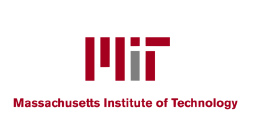https://vet.uga.edu/person/donald_harn/
Much of modern human disease is inflammation based, from obesity to autoimmune diseases. Inflammation also contributes to damage in stroke, cardiovascular disease and in rejection of organ transplants. Thus there is a need for discovery and development of novel anti-inflammatory agents. Our lab determined that a biologically conserved glycan (LNFPIII) is anti-inflammatory. LNFPIII alternatively activates macrophages and dendritic cells via a non-canonical signaling pathway that drives maturation of anti-inflammatory cells. We have shown that LNFPIII is a potent anti-inflammatory agent in vivo, with broad therapeutic capability. Additionally, administration of LNFPIII to HIV-1 infected cells significantly reduces HIV-1 viral loads. Currently we are employing bioinformatics to determine the activation pathways and immune mediators induced by LNFPIII, in conjunction with knockdown, loss of function studies to discover new anti-inflammatory and anti-retroviral reagents.
Vaccine discovery and development. Schistosomiasis remains a global public health problem, infecting approximately 200 million people. In China, water buffalo account for up to 75% of transmission. Via a field trial in Anhui, we are testing the hypothesis that administration of a schistosome vaccine to buffalo will reduce transmission to humans. In separate trials in Hunan, we are optimizing these vaccines. We are focusing on identifying immune correlates of vaccine efficacy. In addition to causing morbidity and mortality, helminthes are immune suppressive. As helminth infections coincide with those countries with the greatest prevalence of HIV-1, we are examining the negative impact helminth infection may have on vaccines for HIV-1 and other viral diseases.
We are also working to develop a vaccine for HIV-1 utilizing the novel approach of employing viral envelope glycans in a glyco-conjugate vaccine similar to bacterial glyco-conjugate vaccines. Because host machinery lays down viral envelope glycans, these antigens are likely to be stable antigenic targets, and conserved across clades.







